|
|
|
|
World leaders will be taking a close look at what progress has been made in tackling HIV and AIDS when they meet under the auspices of the United Nations this week. As Gilles van Cutsem writes, the documents they’ll be reviewing make for uncomfortable reading. Not one of the targets set for managing the pandemic has been achieved. He argues that, to put the HIV response back on track, governments need to commit to four action points:
invest more, leave no one behind, bump up treatment and prevention and address the main diseases that kill people with HIV.
COVAX was created to facilitate equitable access to vaccines. But it hasn’t worked. It was a good baseline model and it was useful because it set targets, argues Monica de Bolle. But, she explains, it had two major flaws. It primarily allocated vaccines in proportion to population sizes, which is not the best public health metric. And it didn’t consider the capacity of countries to roll out massive immunisation campaigns. The answer is
for the Group of Twenty countries to come up with a new arrangement.
|
Ina Skosana
Health + Medicine Editor (Africa edition)
|

|
|
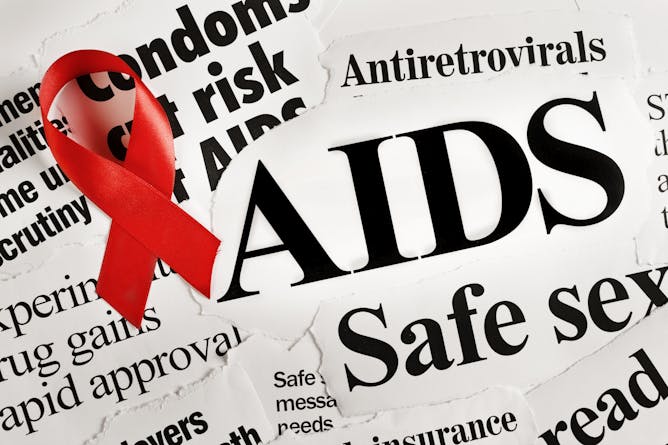
Ending AIDS calls for renewed action.
GettyImages
Gilles van Cutsem, University of Cape Town
The key actions needed to end AIDS are relatively clear. The question is whether every government, funder, and implementing organisations will apply them.
|
|
|
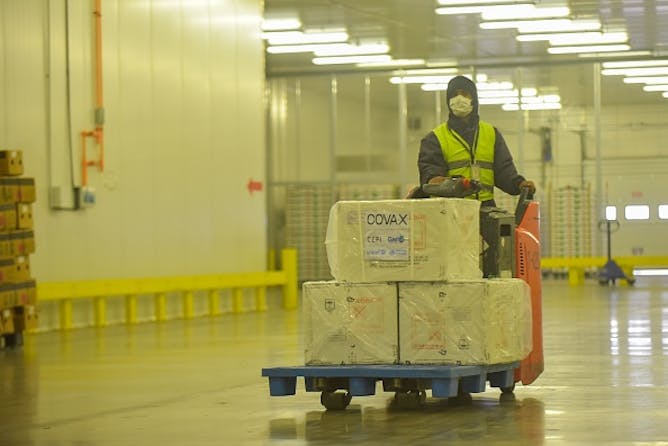
A ground crew member transports the COVID-19 vaccines from COVAX at Bole international airport in Addis Ababa.
Xinhua/Michael Tewelde via Getty Images
Monica de Bolle, Johns Hopkins University
The inefficient vaccine allocation rules currently in place must be replaced by new cooperative institutional structures and more concrete steps by the Group of Twenty (G20) countries.
|
Education
|

Samuel Cornelius Nyarko, Western Michigan University
There are significant gaps in what teachers in Ghana know about ozone depletion and climate change, even though these subjects are in the science curriculum.
| |
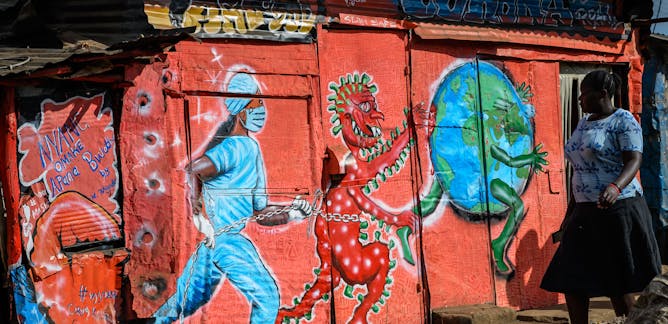
Peet van Aardt, University of the Free State; Brian Sibanda, University of the Free State
The student authors wrote about their lives during lockdown, and their stories were published in a book that now informs their university's syllabus.
|
|
|
Environment + Energy
|

Lydia Tiller, University of Kent; Bob Smith, University of Kent
Crop raiding is happening more often in the Masai Mara, in different places and at different times of the year.
| |

Ifenna Ilechukwu, Madonna University, Nigeria
The Nigerian government must shore up efforts to stop the pollution of aquatic environments.
|
|
|
From our international editions
|

Paul Haskell-Dowland, Edith Cowan University
To understand what happened, you need to know what a CDN (content delivery network) is, and how crucial they are to the smooth running of the internet.
| |
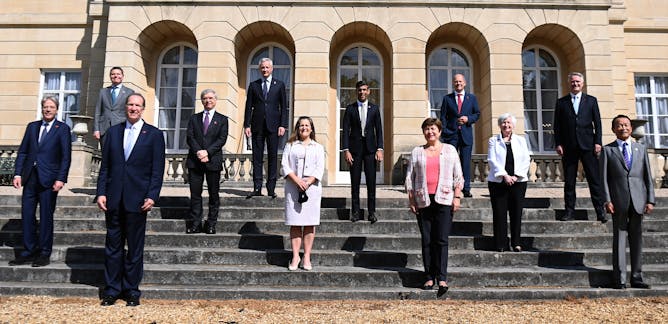
Ronen Palan, City, University of London
To weigh the prospects of a transformation, it pays to look at the markets.
|
|
|
|
|

Antonia Law, Keele University
The lives of one in ten of Earth's species are connected to lakes and their tributaries.
| |

Marilyn J. Roossinck, Penn State
Bat hosts, lab leaks – tracing SARS-CoV-2 to its origins involves more than just tracking down patient zero.
|
|
|
| |
| |
| |
| |

|
| |
| |
| |
Featured events
|
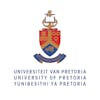
|
Centre for Human Rights, Faculty of Law, University of Pretoria, Pretoria, Gauteng, 0002, South Africa — University of Pretoria
|

|
Lynnwood, Pretoria, Pretoria, Gauteng, 0001, South Africa — University of Pretoria
|

|
University Road, Hatfield, Gauteng, 0083, South Africa — University of Pretoria
|
|
|
|
| |
| |
| |
Would you like to republish any of these articles?
|
|
It’s free to republish, here are the guidelines.
Contact us on africa-republish@theconversation.com in case you need assistance.
|
| |
| |
| |
| |
|
|
|
|
|
|
|